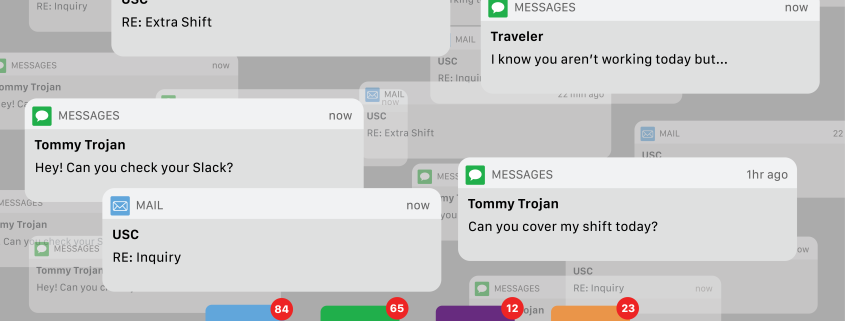The myth of the evil email

In 1971, Ray Tomlinson sent what is considered the very first email. He worked for what is now BBN Technologies and fiddled around with the company’s network, the Advanced Research Projects Agency Network, an early predecessor to the Internet. When asked what exactly he wrote in that first message, Tomlinson quipped, “The first email is completely forgettable. And, therefore, forgotten.”
There lies the very nature of email itself: It’s forgettable. As primitive as technology from the 1970s seems now, computer users had actually been sending messages to each other for years. Even at its birth, email was old news. Why then is this accidental, ever-obsolete invention still eating up so much of our time?
Post-2020, workers everywhere have become more willing — or, perhaps, pressured — to respond to any and all inquiries at any time of day.
According to a study conducted by Microsoft, about more than half of 30,000 participating employees feel overworked, exhausted and/or burnt out. Gene Marks from The Guardian writes, “Thanks to these new working from home arrangements, meetings are significantly longer, ‘chats’ have risen 45% and 41 [million] more emails were sent in one month alone (February 2021) compared with the same month last year.”
This can largely be attributed to companies’ unfamiliarity with working outside the parameters of a typical office and employees’ inability to disconnect. We’re working from home after all and probably wearing comfy pants, so what’s the excuse? Is it really so hard to just respond now?
Being able to contact anyone, anytime, with an air of professional urgency makes it increasingly difficult to disengage, to draw a line between self and employee. If we feel as though we’ve gotten ourselves lodged within the hamster wheel of American capitalism, it’s because we have.
To dislodge ourselves, we must first acknowledge the negative toll our toxic relationship with email has on our lives. First, loitering in our inboxes wastes an average of 21 minutes every day. Full-time working professionals check their email every few minutes, lured by the siren’s call of push notifications. The solution is to schedule specific times to check our email and turn off push notifications.
Next on the chopping block is full inboxes.
They waste an additional 27 minutes per day. We have relatively little control over our eyes; they like to read whatever’s in front of them, and if that means glancing over the same Chamberlain’s Coffee giveaway for the sixth time in half an hour, that is just what they’ll do. The solution is to archive, delete or respond to every email the first time we read them. Hold for Type-A audience applause.
Lastly, but never the least, is junk mail, the bane of existing in the 21st-century. It costs us eight minutes every day to read and process these virtual pieces of recycling, and what do we get out of it, 20% off one-ply toilet paper at Walgreens? The solution is to unsubscribe and block every irrelevant bulletin, newsletter and sales subscription we probably don’t remember signing up for in the first place.
With the rise and fall of related forms of communication — AOL, Myspace, Facebook pokes — it’s natural enough to assume email may someday suffer a similar fate. Currently, however, there are more than three billion registered email addresses, and millennials and Gen Z are using them with record-breaking frequency, with the former group spending an average of six hours a day checking their inboxes.
The foreseeable future is letting email tag along. We may as well figure out a less miserable way to use it.

